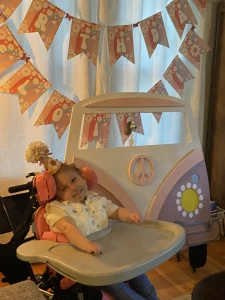Share Your Feedback to Allow CNAs as Paid Family Caregivers
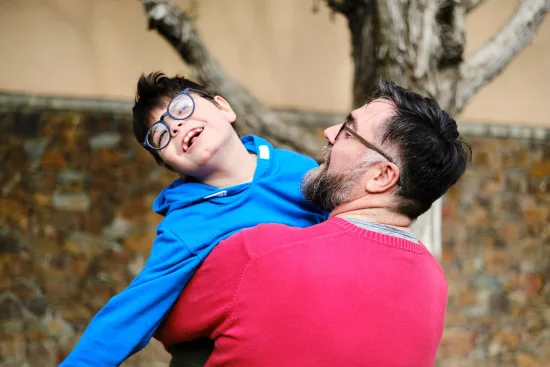
Families have until Jan. 30, 2025, to share their input on a state plan amendment allowing CNAs to become paid family caregivers.
Families can now share their feedback to allow more parents/legally responsible adults (LRAs) to become paid caregivers for their children at home.
The public comment period is currently open for a state plan amendment allowing parents/LRAs to become paid caregivers if they are a certified nursing assistant (CNA) and employed by a nursing agency.
Currently, parents/LRAs are paid for providing skilled nursing services to their children if they hold an active registered nurse (RN) or licensed practical nurse (LPN) license. This rule applies to parents/LRAs of all children approved for Home Care Program services, regardless of the child’s age.
Allowing parents and caregivers who are CNAs to become paid caregivers is an important step in strengthening support for families of individuals who need in-home shift nursing.
This change requires an amendment to the Medicaid Home and Community-Based Services Waiver for Those Who Are Medically Fragile, Technology Dependent (MFTD waiver). It also requires the creation of a new state plan amendment. Both approvals must be in place to allow for this change.
The public comment period for the new state plan amendment is now open until Jan. 30. You can read the public comment notice for the state plan amendment on the Illinois Department of Healthcare and Family Services (HFS) website.
Here is how you can review the amendment and share your feedback.
Review the Amendment
- Visit the HFS website to download and/or print a copy of the proposed state plan amendment.
- Email HFS.BPPC@illinois.gov to request a digital copy of the proposed state plan amendment.
- Review a hard copy of the proposed state plan amendment at HFS’ offices at:
- 201 South Grand Ave. E.,
Springfield, IL 62763 - 401 S. Clinton
Chicago, IL 60607
- 201 South Grand Ave. E.,
Springfield, IL 62763 - 401 S. Clinton
Chicago, IL 60607
- 201 South Grand Ave. E.,
Share Your Feedback
HFS is accepting public input on the proposed state plan amendment through Jan. 30, 2025.
You can share your feedback in two ways:
- Email your input to HFS.BPPC@illinois.gov.
- Mail your written input to the Illinois Department of Healthcare and Family Services, Attention: Bureau of Program and Policy Coordination, 201 South Grand Ave. E., 2nd floor, Springfield, IL 62763
This public comment process is one of the best ways you can make your voice heard.
Next Steps
In addition to the new state plan amendment, we have worked closely with HFS to incorporate this new rule into the MFTD waiver. This waiver amendment is currently under federal review for approval.
There is currently no set timeline for the state plan amendment and the MFTD waiver amendment to be approved.
Once approved, we will notify our Division of Specialized Care for Children (DSCC) participant families as quickly as possible.
If you have any questions, please contact your DSCC Care Coordinator at (800) 322-3722.
DSCC Toddler’s Birthday Celebration Benefits Hospital Patients
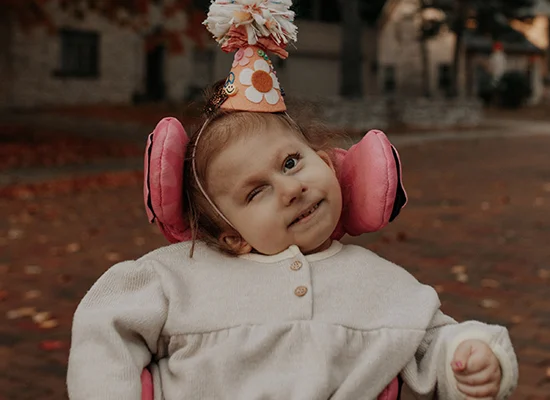
To celebrate Eloise turning 3, her family threw a “groovy” birthday party to provide comfort and treats for patients and their families at OSF Children’s Hospital of Illinois
Birthdays are major milestones in every child’s life. For families of children with rare diseases, they’re especially precious.
Eloise was diagnosed with alobar holoprosencephaly when her mom, Rachel, was 20 weeks pregnant. This congenital condition causes a developing baby’s brain to not properly separate into the right and left hemispheres (halves).
“There are several types of holoprosencephaly and alobar is the most severe. We had no idea if she would be born alive or how long she would live,” Rachel said. “She spent 20 days in the NICU (neonatal intensive care unit) before going home on hospice just before COVID-19 hit.”
Her first birthday didn’t seem possible, let alone future birthdays. But Eloise defied the odds. The Division of Specialized Care for Children (DSCC) participant moved from hospice to palliative care. Eloise is now a feisty 3-year-old who brings joy to everyone she meets, Rachel said.
To celebrate Eloise turning 3 in November, her family planned a special birthday party to benefit the patients and their families at OSF Children’s Hospital of Illinois. The party, dubbed “Eloise Fest – Let’s Get Groovy,” provided plenty of treats and gifts from local businesses. The celebration also donated new sound machines to create a more calming setting for families.
“The party was a way to give back and celebrate something we never dreamed possible,” Rachel said.
Eloise has spent time in nearly every pediatric unit of OSF Children’s Hospital. Rachel and her husband, Zach, got the idea for Eloise Fest when they noticed some of the hospital rooms didn’t have sound machines.
“Eloise’s first and second birthdays we raised money for the Carter Centers for Brain Research in Holoprosencephaly and Related Brain Malformations. This year we wanted to do something more tangible,” Rachel said.
“It may seem like a small thing but hearing the beeps and monitors all the time can be really stressful for families and patients. A sound machine helps provide calm by drowning out the medical stuff. During our stays, we usually set our machine on the ocean setting and it helps provide a sense of calm that’s hard to come by in a hospital. We wanted to help other families have that same sense of calm.”
Rachel and Zach worked with the hospital to find out how many sound machines each department needed. The couple then posted a wish list for their family and friends to buy 92 sound machines and related supplies. They fulfilled the wish list within three days.
“It was so touching to see how many people are impacted by Eloise’s story and are there supporting and loving her,” Rachel said.
Eloise’s “groovy” themed party also included her favorite music playlist and a VW bus photo station that traveled from floor to floor. Local businesses also donated an array of food and non-food goodies for patients and staff.
“This has been three years we didn’t know that we would get,” Rachel said. “I’m grateful for the team that we have surrounding us that includes doctors who understand and all the support our friends, family and DSCC provides. How else would we have gotten here?”
You can see more photos from Eloise Fest and the list of local business donors on OSF Children’s Hospital’s Facebook page.
Read more about Eloise’s powerful journey on our Family Stories page.
Family Input Guides State Plan for Children With Medical Complexity
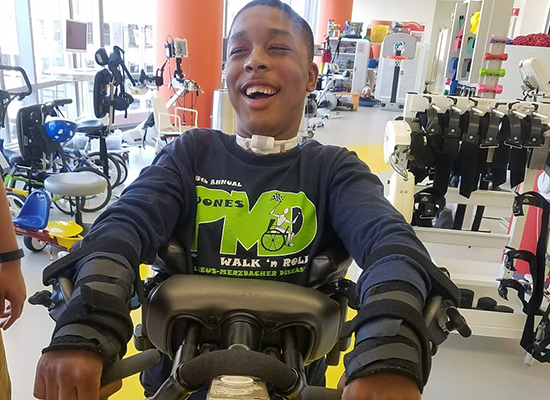
Illinois awaits approval to use FMAP funds for improving care for our Home Care Program participants
Illinois has developed a plan to use increased federal funding to improve support and services for children and youth with complex medical needs.
This plan incorporates valuable feedback from our participants, stakeholders and staff members at the University of Illinois Chicago’s Division of Specialized Care for Children (DSCC).
The extra funds are part of the American Rescue Plan Act of 2021. The act gives Illinois a temporary 10 percent increase in federal funding for home and community-based services (HCBS). This 10 percent increase is called the Federal Medical Assistance Percentage or FMAP.
Illinois must use the FMAP funds to enhance, expand or strengthen HCBS.
HCBS includes the waiver for children who are medically fragile and technology-dependent (MFTD). Therefore, the FMAP can provide extra funds to help support children and youth in the Home Care Program and their caregivers. FMAP improvements will also affect individuals who receive in-home, shift-based nursing as a non-waiver benefit.
In late May, DSCC asked our participant families, staff and community partners for input on how to use the FMAP funds. We also sought feedback on DSCC’s ideas for improving HCBS for Home Care participants.
We shared the input we received with the Illinois Department of Healthcare and Family Services (HFS). We then worked with HFS to develop Illinois’ proposal for using the FMAP funds.
Ideas included in the proposal are:
- Expand consumer direction (the ability for consumers to make choices about the services they receive) to allow unlicensed family caregivers to be paid caregivers. DSCC would then work to develop health and safety monitoring, assist with training and more. This change could provide caregiver relief to a large number of Home Care families.
- Develop a nursing portal where open shifts could be posted by nursing agencies and families. This portal would be visible to home nurses and families. The intent is to try to improve nursing coverage for open shifts across the state.
- Improve training and access to training to help improve the quality of nursing care in the home. This initiative would include developing training that builds on and complements existing training for caregivers in the home.
- Increase the in-home respite nursing rates to match the rates from the 2019 nursing rate increase.
- Increase the child-specific training rates to match the rates from the 2019 nursing rate increase.
HFS submitted Illinois’ proposal to the federal Centers for Medicare and Medicaid Services in July. We are now awaiting its approval and planning for the necessary next steps.
It is important to note that though the FMAP funding increase is temporary, we hope to make many of these changes permanent. We are discussing how to handle any relevant long-term costs with HFS.
We are excited about this opportunity to improve care for our Home Care Program participants.
Thank you to everyone who took the time to share their ideas and feedback with us.
We will continue to share updates on the status of Illinois’ proposal as they become available.
Important Updates for Home Care Families
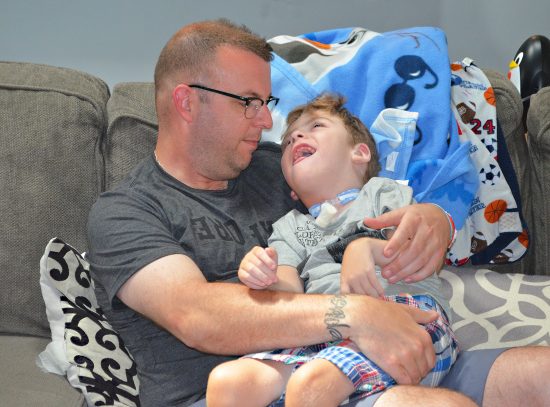
DSCC is partnering with HFS to focus on families’ concerns and find solutions to pandemic-related challenges.
The University of Illinois at Chicago’s Division of Specialized Care for Children (DSCC) takes pride in our partnership with the participants and families we serve.
Some Home Care parent partners have let us know about recent concerns affecting their children and families. We are working with the Department of Healthcare and Family Services (HFS) to address these concerns.
DSCC’s leadership would like to share the following updates with our Home Care families:
School in the fall
This school year will likely be a very different experience for our participants. With the first day fast approaching, we want you to know that DSCC and HFS are partnering to discuss ways to ensure your family is supported.
The decisions for how schools will operate this fall is up to individual school districts across the state.
We know many schools have yet to comprehensively address how they will handle services for children with individualized education programs (IEPs). Please communicate closely with your school district.
Also, let your DSCC Care Coordinator know if there are ways we can help support you and your child. Our staff can attend school meetings and work with your child’s IEP team to make sure their needs are met.
In a recent notice from HFS, the agency states it will ensure your child receives adequate nursing hours if the way nursing hours are provided in the school setting changes. Some individuals already have this difference written into their 2352. DSCC is working to get this information to HFS for changes to be made.
If your child’s difference in nursing hours from school is not clearly stated in your 2352 allocation, please notify your Care Coordinator so we can work to have HFS review your needs further.
DSCC encourages you to discuss any concerns about your child’s school-related needs with your pediatrician. Your child’s medical team can help weigh the pros and cons of in-person versus remote learning, if applicable.
Personal Protective Equipment (PPE)
Nursing agencies are responsible for providing PPE supplies for nurses working in your home, as always.
With the COVID-19 pandemic creating an increased demand for PPE, HFS has approved an additional $16 per day payment to nursing agencies on the days a nurse is working in the home. The nursing agencies across the state have received guidance on how to bill for this additional payment (a fairly simple process).
DSCC has been communicating regularly with home nursing agencies about the availability of PPE supplies. To date, availability has not been a problem. If you have concerns about the PPE supplies provided for your home nurses, please let DSCC know.
Your Home Medical Equipment company handles providing PPE supplies for your family. You will need an order from your child’s provider for these supplies.
Reminders
HFS received approval for several additional elements to be provided for your child, as needed, as part of Appendix K. Appendix K is an emergency coverage document for individuals receiving services through a Medicaid waiver. Please see a copy of the approved Appendix K document.
A few elements included are:
- Approval of nurse overtime for nurses working in the home setting at a rate of time and a half (for medically fragile, technology-dependent (MFTD) waiver participants only)
- Parents who are licensed nurses may be paid caregivers (for MFTD waiver participants and Nursing and Personal Care Services (NPCS) non-waiver participants)
- Respite hours are increased to 672 per year with respite provided at an increased rate (for MFTD waiver participants only)
Our DSCC team is here to support our Home Care participants and families. We will continue to work closely with HFS to focus on your concerns and find solutions.
We are all facing new challenges as a result of the COVID-19 pandemic. Please continue to communicate with your DSCC Care Coordinator or feel free to contact our administrative team to discuss any additional concerns you may have.
Home Medical Supply Guidance for Families During COVID-19 Outbreak
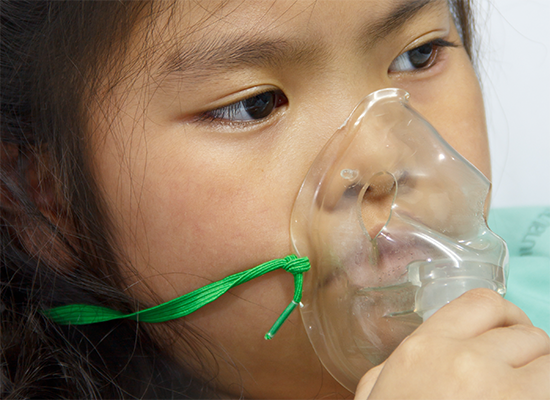
Instructions for safely cleaning and re-using supplies for technology-dependent children.
Adequate medical supplies are essential for families caring for children who are medically fragile and technology-dependent at home.
The University of Illinois at Chicago’s Division of Specialized Care for Children (DSCC) wants to make sure our participant families can keep their supplies properly stocked through the coronavirus disease 2019 (COVID-19) outbreak.
We’ve compiled guidance and instructions to help families safely clean and re-use supplies in case there’s a future shortage. *Please note you should check with your child’s care team to make sure these guidelines are appropriate for your child.
The DSCC Guidance on Home Medical Supplies includes instructions for cleaning and re-using:
- Feeding supplies
- Suction supplies
- Tracheostomy supplies
- Ventilator equipment
- Nebulizer equipment
*Again, please check with your child’s care team to make sure these guidelines are appropriate for your child.
The guidance is available on our Home Care Information and Resources page as well as in our list of COVID-19 resources and supports for families.
Our Care Coordinators are also available to discuss strategies and help you become prepared and well-equipped for your child’s care in the weeks and months ahead.
Please reach out to your local regional office or call us at (800) 322-3722.
COVID-19 Guidance for Medically Fragile Children
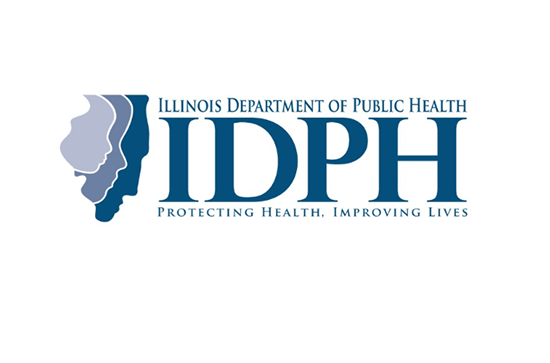
The Illinois Department of Public Health gives recommended guidance for preventing the spread of COVID-19 in medically fragile children.
The Illinois Department of Public Health has provided guidance for how to prevent the spread of the coronavirus disease 2019 (COVID-19) in medically fragile children.
The guidance includes:
- Planning actions for the home healthcare agency during a disease pandemic
- Preventative actions for the introduction of respiratory germs into your home
- Preventative actions for the introduction of respiratory germs within your home
- Preventative actions for vulnerable populations
- Contingency planning
The guidance is available in our COVID-19 resource list and at this direct link to the guidance document.
Project Provides Santa Home Visits to Medically Fragile Children

The Secret Sleigh Project is now accepting applications for Santa home visits during the 2019 holiday season.
Illinois children with an illness and/or disability that makes traveling difficult could receive a free home visit from Santa this holiday season.
The Secret Sleigh Project is an organization that coordinates volunteers to provide Santa home visits to children who are medically fragile nationwide.
A Colorado mother created the project in 2015 after her own daughter was diagnosed with a respiratory complication.
“It was overwhelming to consider seeing Santa. And then I had a vision of Santa walking into Lily’s room and her lighting up at the sight of him,” Secret Sleigh Project Director Sarah Kordis said.
“I posted the idea on Facebook, and shared how I would like to help other families receive a home visit as well. Within two hours, thanks to a remarkable friend, we had Santa. Two weeks after, Santa visited 16 children all over northern Colorado, including Lily and her brothers.”
That next year, the project enlisted more than five Santas to visit more than 50 children in three different states. Today, the project is able to provide Santa home visits in every state.
“It is not always possible to provide a visit to every child, but we do our absolute best to make it happen,” Kordis said.
To apply for a Santa home visit from the Secret Sleigh Project, interested families must complete the following forms and email them to secretsleigh@gmail.com:
- Complete the 2019 Family Application
- Complete the 2019 Family Liability Release
- Complete the Photo Release Form
Applications are due Dec. 1. After this deadline, the project puts families on a waiting list.
For more information, email secretsleigh@gmail.com or visit the Secret Sleigh Project Facebook page.
Please note, the Secret Sleigh Project is a separate organization that is not affiliated with the University of Illinois at Chicago’s Division of Specialized Care for Children (DSCC). DSCC is not involved in the organizing or scheduling of these Santa home visits.
Public Comment Notice for MFTD Waiver
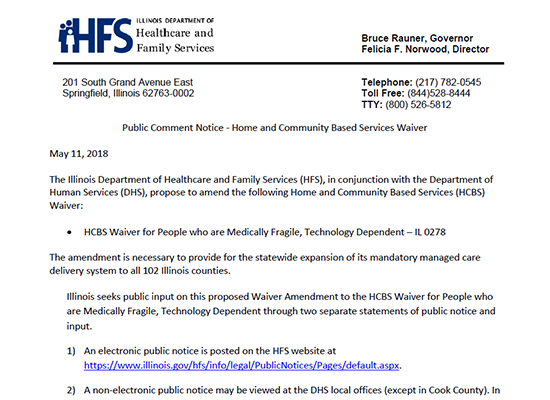
Comments for the proposed medically fragile, technology dependent waiver amendment are due June 9.
The state invites families to provide their input for an amendment to the Home and Community Based Services (HCBS) Waiver for children who are medically fragile and technology dependent. This waiver is operated under the Illinois Department of Healthcare and Family Services (HFS).
The amendment is necessary to provide for the statewide expansion of its mandatory managed care delivery system to all 102 counties in Illinois.
Families who would like to view the waiver amendment may do so in the following ways:
- Electronically at https://www.illinois.gov/hfs/SiteCollectionDocuments/MFTDPublic2018.pdf.
- A hard copy may be requested by calling (217) 557-0997.
- Copies are also available at the following locations:
- Healthcare and Family Services
201 South Grand Avenue East
Springfield, IL 62763OR - Healthcare and Family Services
401 S. Clinton St.
Chicago, IL 60607
- Healthcare and Family Services
The University of Illinois at Chicago’s Division of Specialized Care for Children (DSCC) also has copies of the waiver amendment for families to review at the following DSCC regional offices:
Comments may be submitted through June 9. Comments may be sent through the following methods:
- Email to HFS.HCBSWaiver@illinois.gov
- Mailed to the Illinois Department of Healthcare and Family Services
Attn: Waiver Management
201 South Grand Avenue E., 2nd Floor
Springfield, IL 62763
A summary of the public notice and comments will be incorporated into the amendment. The summary will include modifications to the initial waiver amendment and the reasons why the State of Illinois adopted or did not adopt specific comments or recommendations.



